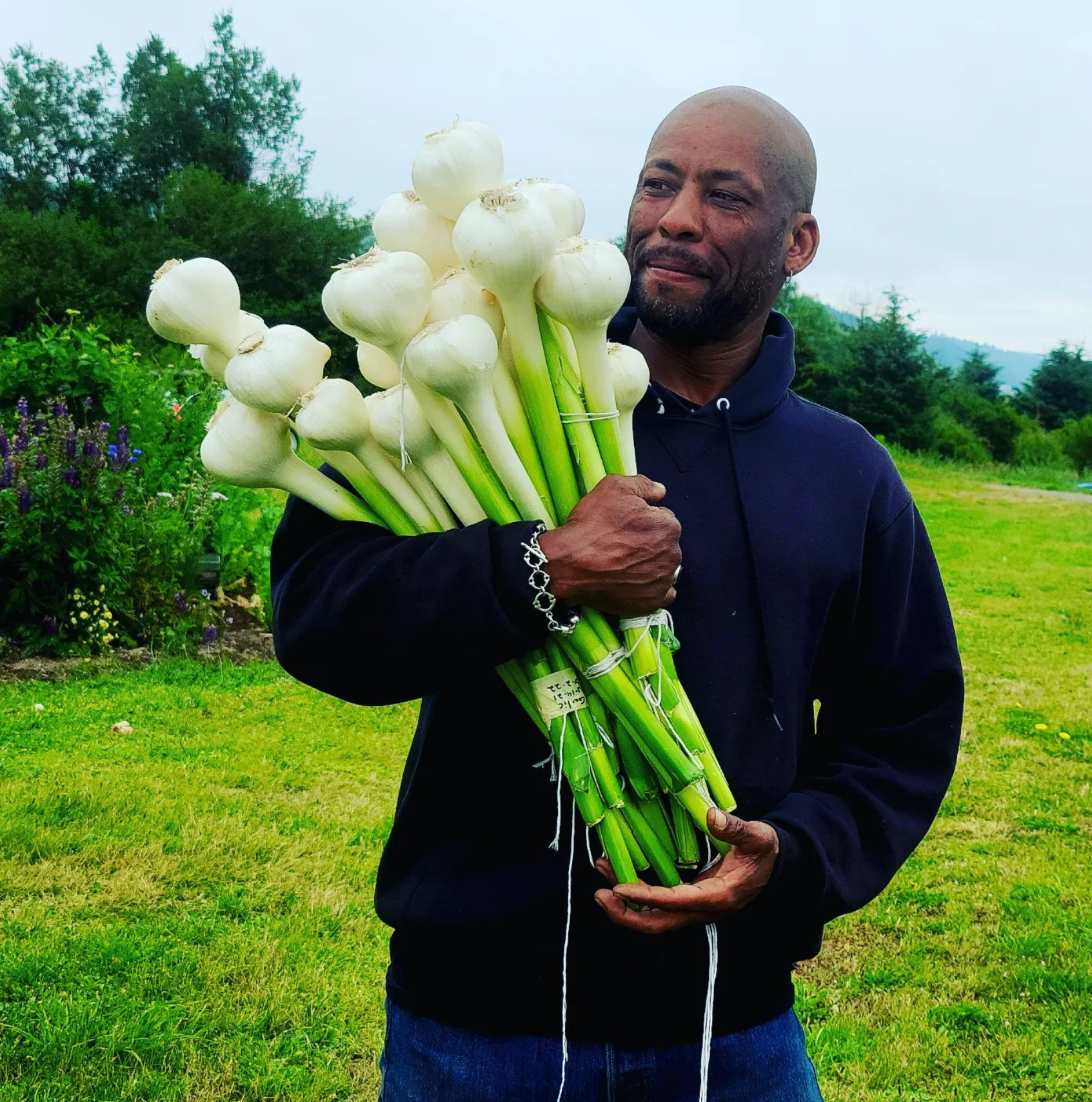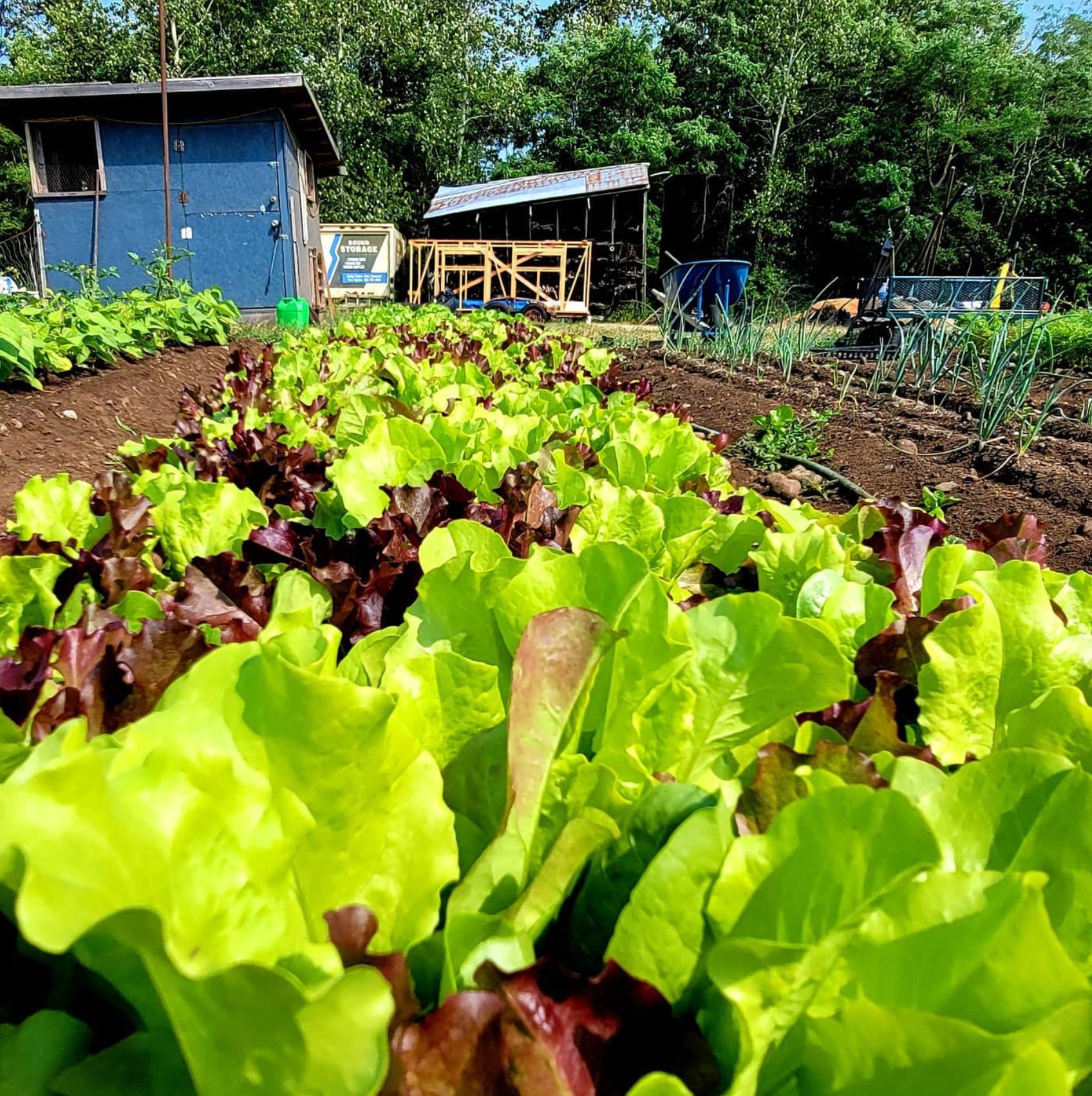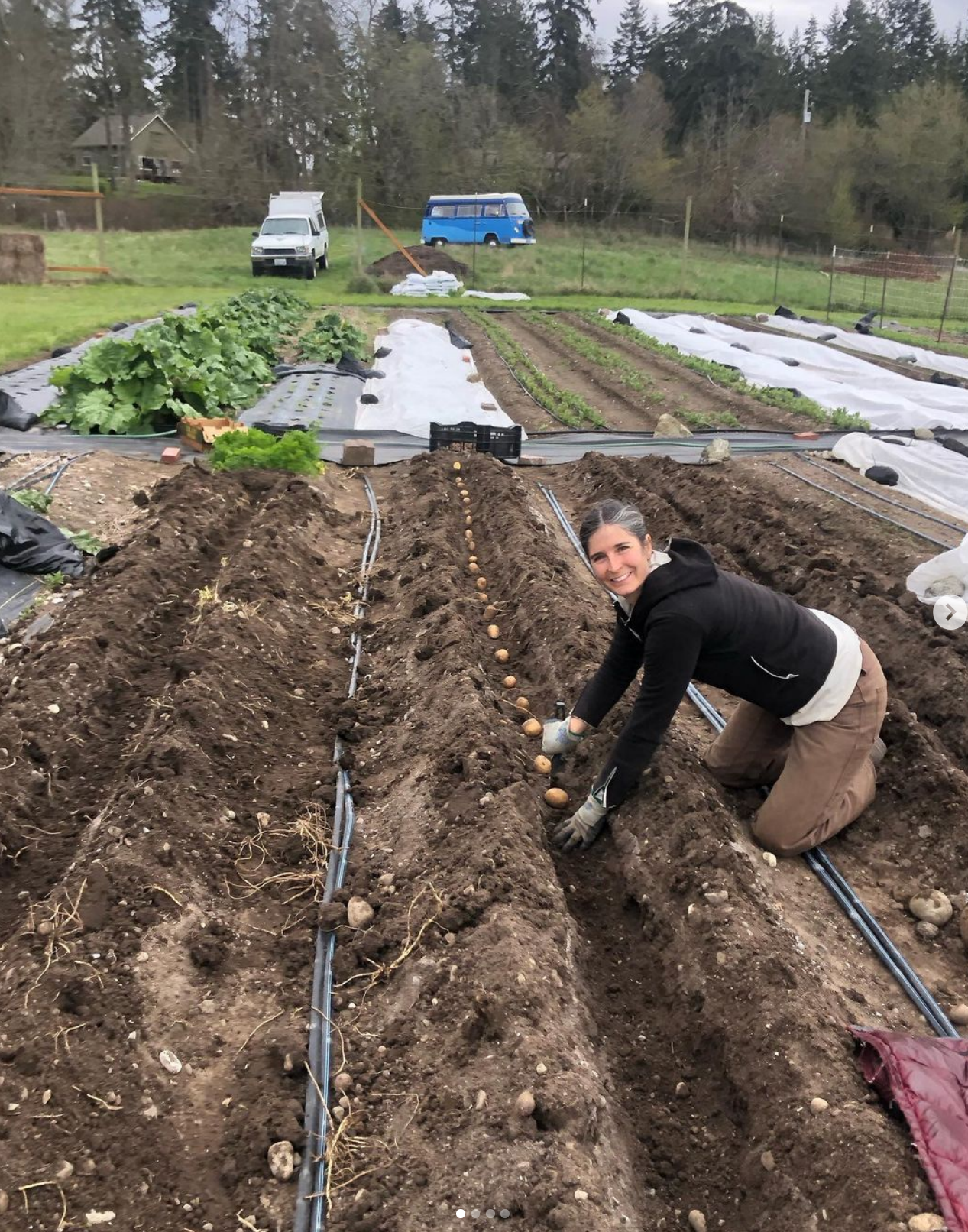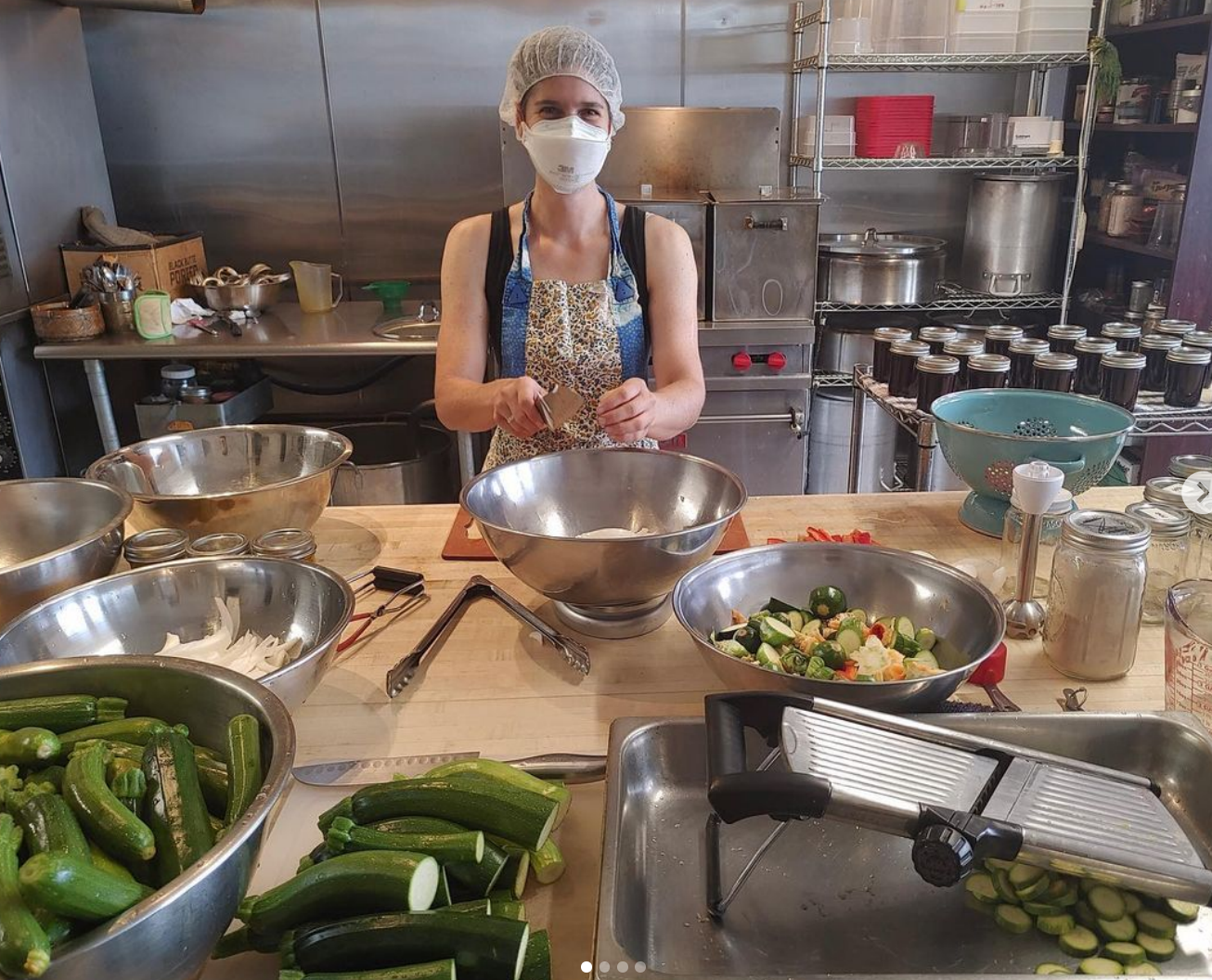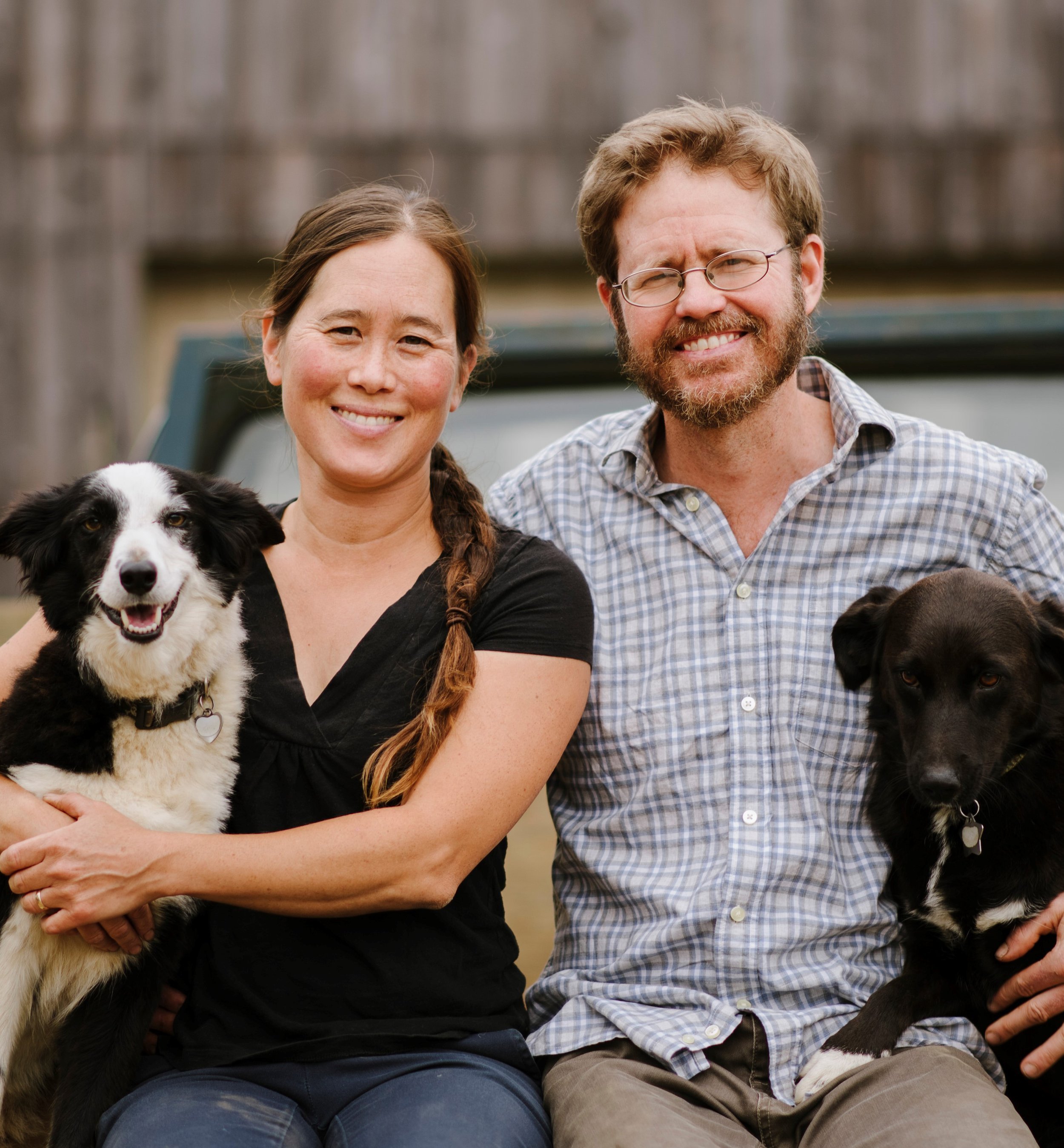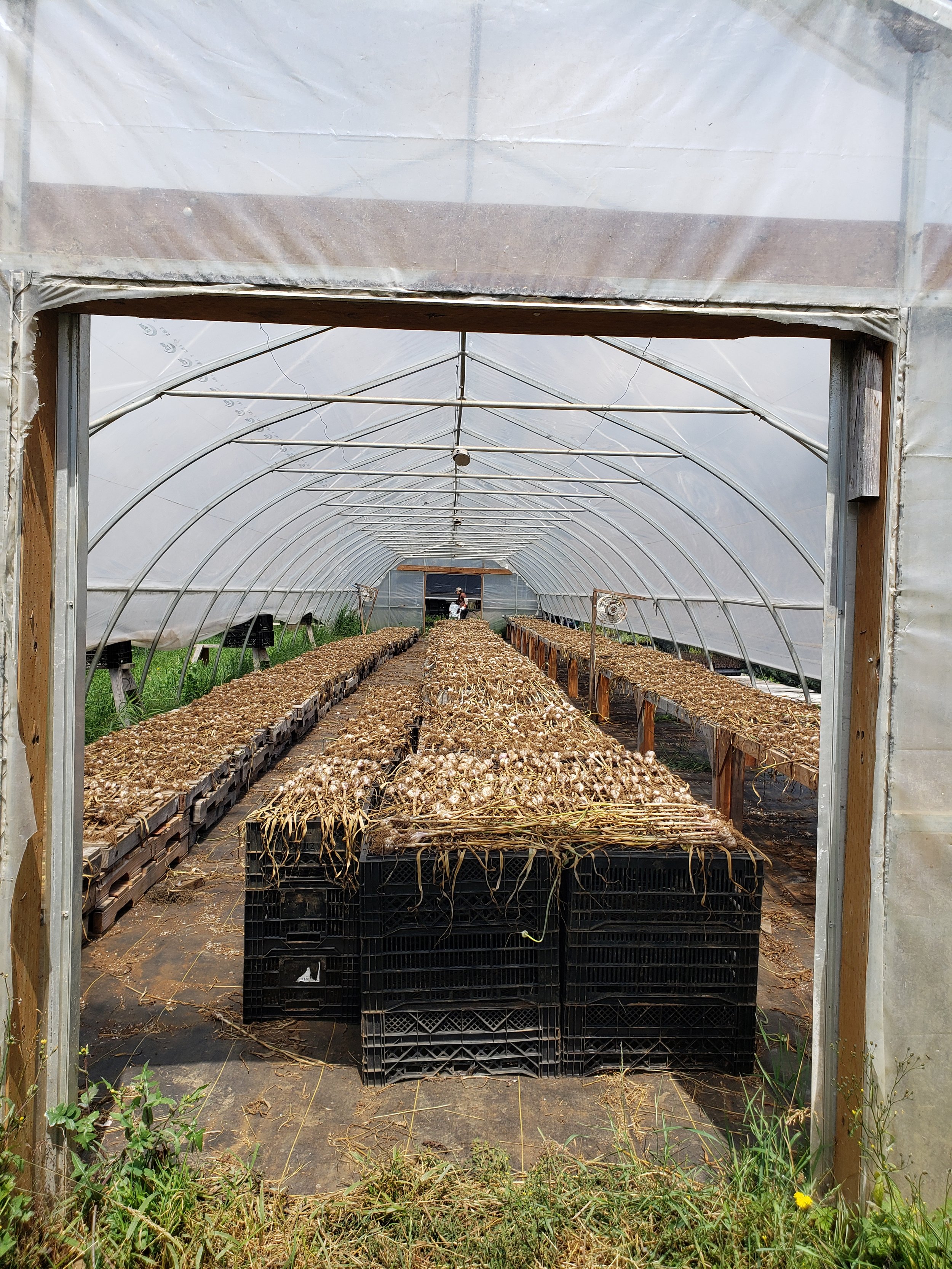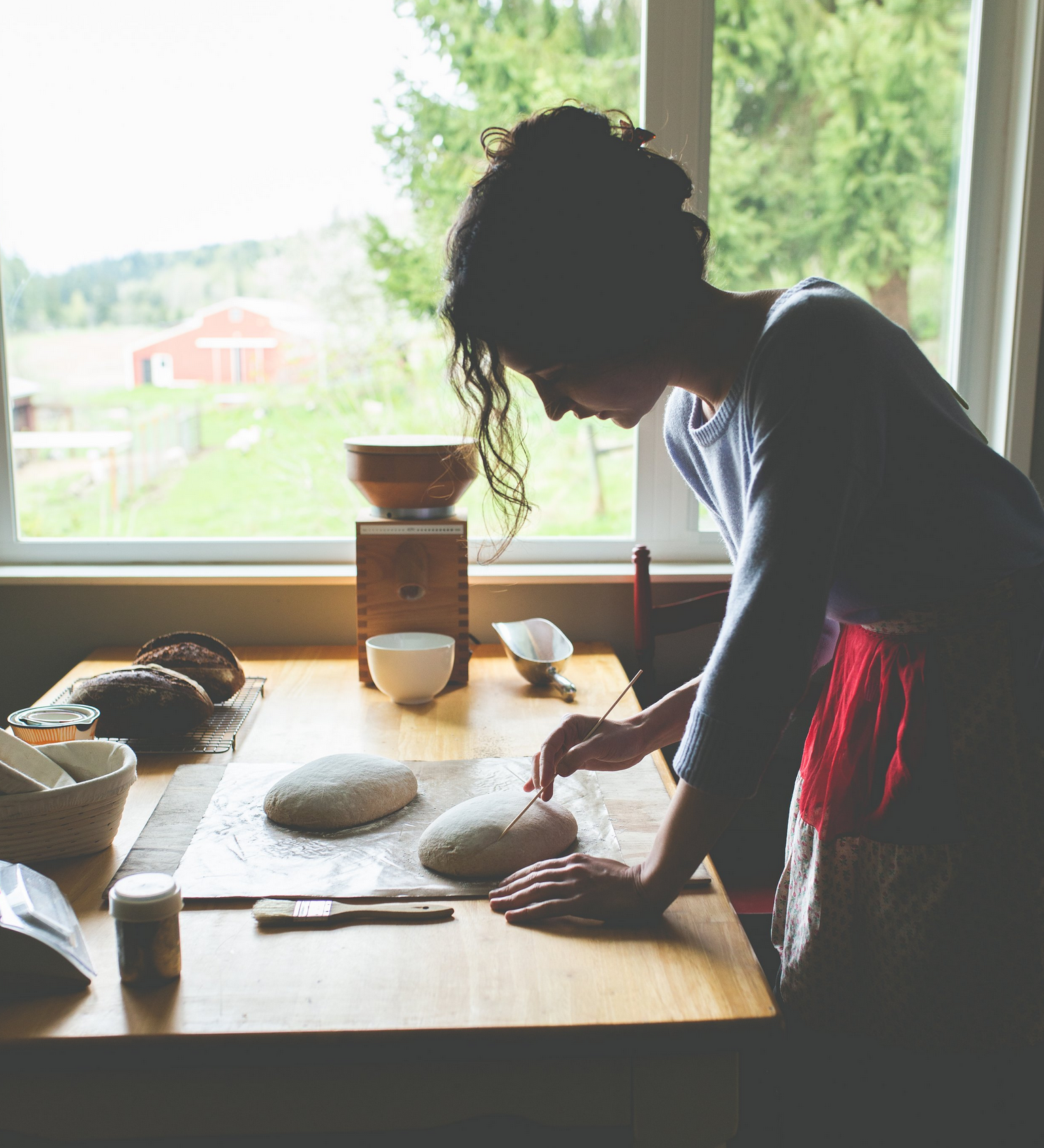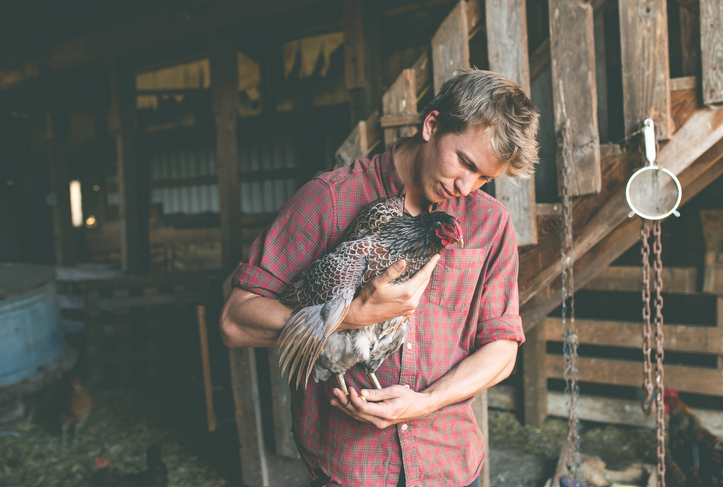Our First Farmer Fund Grants
In February, we were thrilled to award our first Farmer Fund Grants to six local farms— Woodbridge Farm, The Longhouse for the People First Food Project, Goosefoot Farm, Hopscotch Farm and Cannery, Midori Farm, and White Lotus Farm. These grants support a range of projects, from kraut production to indigenous farming practices, that we believe will bring more good food to the community and increase our resilience.
On Woodbridge Farm in Chimacum Valley, Peter Mustin grows flowers, produce, and chickens. The 24-acre farm was not tended for many years, so he’s been working to gradually bring more acres into cultivation. He needs a tractor attachment to remove rocks and smooth the land, and the Co-op grant will enable him to purchase a rake riddle bucket. Look for Peter at the Chimacum Farmers Market, and check out his website: www.woodbridgefarm.net.
The Longhouse for the People’s First Food project is an effort to restore Indigenous foodways by planting native edible plants in order to learn and teach traditional methods of growing, processing, and serving these foods. They are building a longhouse in Quilcene where they plan to celebrate local food relationships and share traditional knowledge. Funds from the grant will be used to rent equipment for preparing garden beds and to purchase plants and tools. Their website is www.thetamanowasfoundation.org.
Goosefoot Farm is a collective farm in Chimacum, formed to reduce food insecurity in our county. Their mission is to provide free, high-quality organic produce, and in 2023, they distributed over 16,000 pounds! Goosefoot began in 2019 with help from Finnriver and the Tri-Area Food Bank, and their work has been very collaborative, including nonprofits, neighboring farms, volunteers with and without experience in farming, etc. They will use the grant money to purchase organic vegetable seeds, farm amendments, and for essential repairs and maintenance for their farm truck and tractor. See www.rootsproject.org/food-access1.html for more information.
At Hopscotch Farm, Meghan Mix grows heirloom produce to sell at the Farmers Market, local groceries, and in CSAs. She also processes her farm’s bounty into shelf-stable jars of pickles, jam, and relish, one batch at a time. She farms using no-till methods as well as other practices that improve the soil and require few “off-farm” inputs or fossil fuels. Meghan currently preps all her vegetables by hand, and as her business has grown, this work has become very time consuming, so she will use her grant to buy a Robot Coupe Vegetable Preparation Machine. See her website at www.HopscotchFarmPT.com.
Midori Farms grows a myriad of organic produce, from basics like potatoes and onions to less common vegetables like bitter greens, amazing squashes, and various kinds of radicchio. Hanako Myers and Marko Colby are also well known for their delicious and award winning range of krauts, from Kimchi to Curtido to leek and more. Making this kraut takes a lot of garlic and peeling garlic is a very time-consuming task, so Hanako and Marko will be using their grant to purchase a garlic peeling machine. Their website is at www.midori-farm.com.
Natalie and Niall Motson of White Lotus Farm left their engineering careers to immerse to become part of the Olympic Peninsula’s vibrant food system. Over the last six years, they have gradually expanded their production from eggs, cut flowers, and bread to lamb and wool, in addition to offering farm stays and an event venue. They work with other local farms, such as Chimacum Valley Grainery for their organic flour and Space Twins Provisions, land tenants who grow vegetables with the no-till method. Natalie and Niall had planned to use their grant to buy a bread slicer, but their circumstances changed and they will be using it for much needed repairs to the roof of their bakery. Check out their website at www.whitelotusfarmandinn.com.
The Food Co-op was able to give grants to six farms, instead of the single grant we anticipated, because our new prompt at register, which began in November 2023, increased our donations to the fund from $1700 in eight months to $10,000 in one month! Next year we should be able to fund many more grants due to the generosity of our members. Some of the funds raised will go to some local nonprofits important to our community, such as the Food Bank. Thank you for generosity!!

